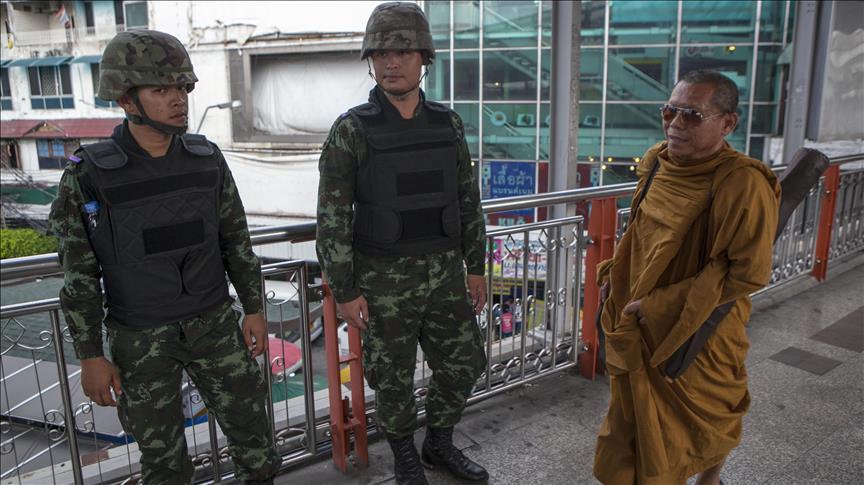Thai junta restores law allowing king to pick top monk
Monks had warned junta that they would not remain passive if controversial amendment to monastic law was passed
 File photo
File photo
By Max Constant
BANGKOK
Thailand's junta-appointed legislative assembly has unanimously passed an amendment to law that entitles the king to appoint the leader of the Buddhist clergy without the involvement of the monastic hierarchy.
With prominent monks warning the government they would not remain passive if the change -- which sees the monastic law restored to its pre-1992 state -- was made, the move could exaggerate tensions between the Buddhist community and the regime.
On introducing the amendment to the 250-member assembly Thursday, Police Gen. Pichit Khuandechakupt, chairman of the legislative committee on religion, arts and culture, underlined that its purpose was "to perpetuate and preserve the ancient royal tradition”.
The amendment stipulates that “the King appoints the Supreme Patriarch [the leader of the Thai Buddhist church], whose appointment will be countersigned by the prime minister”.
Prior to the ruling, the prime minister -- Gen. Prayuth Chan-ocha, who seized power in May 2014 when he overthrew the elected government of Yingluck Shinawatra -- was only entitled to transmit to the king the choice of the Supreme Sangha Council, a 20-member assembly of senior monks.
Lawmakers passed the amendment with 182 votes for, none against, and six abstentions.
With a new Supreme Patriarch still to be appointed following the death of the incumbent in 2013, the move is aimed at finding a way out of the political stalemate which surrounds his appointment.
Last January, the council forwarded the name of 90-year-old senior monk, Somdej Chuang -- the obvious choice according to monastic law -- to the prime minister to transmit to the then king for approval.
Chan-ocha, however, refused to transmit Chuang's name as the monk was involved in a controversy about tax payments for an imported vintage car.
The refusal provoked protests by hundreds of monks against the regime, one of whom, the vice-rector of one of the main Thai Buddhist universities, warned the government Thursday that monks would not remain passive if the amendment was passed.
“If you think you have the authority and the legitimacy to proceed, so do we,” Phra Methee Thammajarn wrote on his Facebook page.
Analysts claim that the main reason why the military regime is unwilling to have Chuang become Supreme Patriarch is because of his close links to controversial Buddhist temple Wat Dhammakaya.
Wat Dhammakaya, which propagates an unorthodox and materialistic version of Buddhism, is under numerous accusations of money embezzlement and land encroachment.
Since last June, police have been attempting to arrest the temple's abbot, Phra Dhammachayo, but have so far been unsuccessful due to resistance from Wat Dhammakaya followers.
King Maha Vajiralongkorn recently ascended to the Thai throne following the October death of his father, King Bhumibol Adulyadej.
Anadolu Agency website contains only a portion of the news stories offered to subscribers in the AA News Broadcasting System (HAS), and in summarized form. Please contact us for subscription options.


